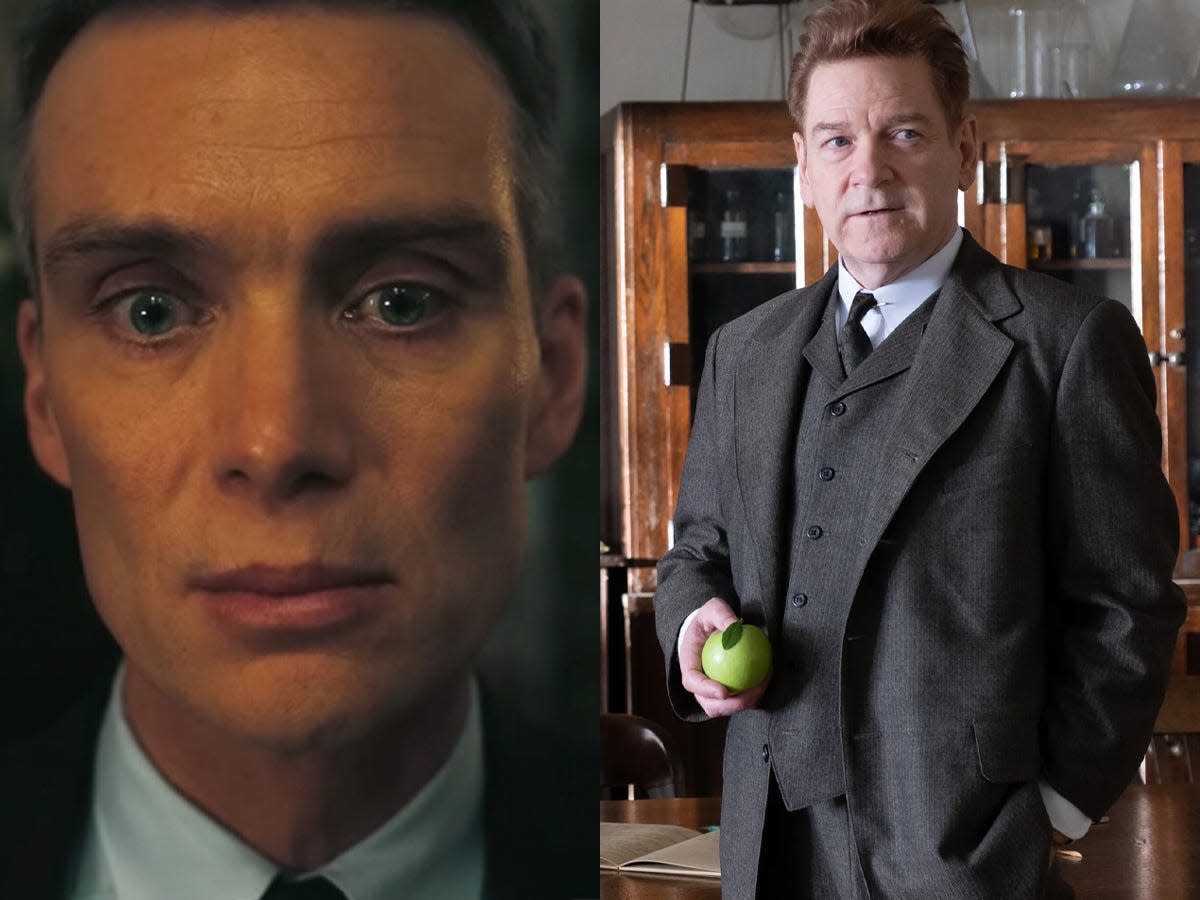Oppenheimer's grandson disputes poison apple scene in Christopher Nolan movie: 'There's no record of him trying to kill somebody'

- Oops!Something went wrong.Please try again later.
- Oops!Something went wrong.Please try again later.
Christopher Nolan's latest movie looks at how J. Robert Oppenheimer created the atomic bomb.
One early scene in "Oppenheimer" suggests the scientist tried to poison his tutor.
But Oppenheimer's grandson has disputed the scene, saying there's "no record" of that happening.
Christopher Nolan has stunned audiences and critics alike with his 12th feature film, "Oppenheimer," which has already earned a 94% score on Rotten Tomatoes.
The movie examines the life of J. Robert Oppenheimer (Cillian Murphy), the scientist who led the Manhattan Project and built the atomic bomb during World War II.
Nolan based the story on the Pulitzer Prize-winning book, "American Prometheus: The Triumph and Tragedy of J. Robert Oppenheimer," by Kai Bird and Martin J. Sherwin, but Oppenheimer's grandson, Charles, feels there was some creative license taken in one scene in particular.
Speaking to Time magazine this week, Charles Oppenheimer disputed the moment the scientist seemingly tries to poison his university tutor, Patrick Blackett (James D'Arcy), with an apple laced with potassium cyanide. Oppenheimer, thankfully, throws the apple away just before Niels Bohr (Kenneth Branagh) can eat it.
"The part I like the least is this poison apple reference, which was a problem in 'American Prometheus,'" said Charles Oppenheimer. "If you read 'American Prometheus' carefully enough, the authors say, 'We don't really know if it happened.' There's no record of him trying to kill somebody."
Oppenheimer's grandson added: "That's a really serious accusation and it's historical revision. There's not a single enemy or friend of Robert Oppenheimer who heard that during his life and considered it to be true."
Charles Oppenheimer went on to say that he "definitely would have removed the apple thing," but can't imagine giving advice to Nolan, who he called an "expert" and a "genius."
"American Prometheus" isn't the only book that discusses the cyanide apple.
In Ray Monk's biography, "Robert Oppenheimer: A Life Inside the Center," the author states: "The incident was hushed up at the time, and none of his friends knew about it until they were told of it by Oppenheimer himself, usually in some more or less misleading version."
Although Monk also claimed that Oppenheimer's father persuaded the university not to press charges over the incident, he debates whether the poisoned apple was "metaphorical."
Read the original article on Insider

